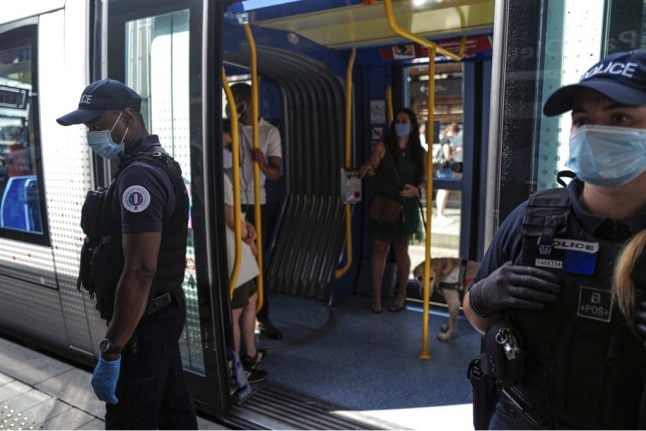France's strategy so far for the second wave of Covid-19 infections is to avoid a national lockdown and rather impose local restrictions where necessary.
With 55 départements now officially classed as 'red zones' several of France's biggest cities have been ordered by the government to come up with their own local restrictions.
MAP Where are France's 55 coronavirus 'red zones'?
So far none of these have been particularly far-reaching and no cities have reimposed lockdown, but here are the extra restrictions in place for different parts of France.
Lyon
The eastern French city was told on Thursday that it must tighten restrictions after a leap on the number of cases.
It has now announced several new measures, which will come into force on Tuesday, September 22nd.
They include:
- A ban on gatherings of more than 1,000 people (the national limit is 5,000)
- Certain types of gathering including vide-greniers (yard sales) or funfairs are banned completely
- Private gatherings of more than 10 people are discouraged (but not actually banned)
- The sale and consumption of alcohol in public spaces is banned between 8pm and 6am.
Marseille
The densely-populated southern city of Marseille is one of the worst-affected places in France with high numbers of cases and increasing pressure on hospitals.
The authorities of the Bouches-du-Rhône département have introduced new restrictions for the city and some surrounding areas. They are:
- A ban on gatherings of more than 10 people on beaches and in parks
- A ban on any gatherings of more than 1,000 people
- Alcohol consumption in public spaces after 8pm is banned
- All bars and restaurants must close at 12.30am
- Cancellation of the annual Journée du Patrimonie heritage events
Bordeaux
Bordeaux and the surrounding Gironde area, relatively untouched during the first wave of the epidemic, is now a cause for concern for the French government.
Its restrictions now include
- A ban on gatherings of more than 10 people on beaches and in parks
- A ban on any gatherings of more than 1,000 people
- Alcohol consumption in public spaces after 8pm banned
- Drinking while standing in bars or cafés is banned
- Bars can be closed immediately if their customers are seen breaking the rules
- Private gatherings of more than 10 people are discouraged
- Gatherings including vide-greniers and funfairs are banned
Paris
Although case numbers in the capital and its surrounding region are high, authorities deem the situation to not yet be so serious as to require extra measures.
However Parisians have been warned to tone down their socialising to avoid a repeat of the situation during the first wave which saw hospitals reach breaking point and critically-ill patients having to be sent to other parts of France.
Health minister Olivier Véran said: “The figures no longer leave any doubt: Family and social gatherings are massive sources of infection.
“Each and every one one of us plays a key role in the fight against the virus.”
Nice
The French Riviera city was also ordered on Thursday to come up with a plan for extra restrictions on a local level. These are;
- A ban on any gatherings of more than 1,000 people
- Alcohol consumption in public spaces after 8pm banned
- Bars and restaurants close at 12.30am
- Nice football club is now playing its matches behind closed doors
Lille, Toulouse and Rennes
These cities have all reported high levels of new Covid-19 cases, but so far are not seeing the same pressure on hospitals that has lead to other cities being ordered to take extra measures. However, this could change if the number of new patients admitted into the cities' hospitals continues to rise.
Masks
In addition to the measures above, many local areas have brought in stricter rules on mask wearing.
The national rule says only that masks must be worn in indoor public spaces, but many local authorities – including virtually all of France's large towns and cities – have extended this to make masks compulsory on the street as well.



 Please whitelist us to continue reading.
Please whitelist us to continue reading.
Member comments